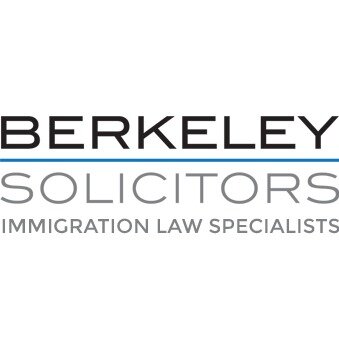Best Immigration Lawyers in Dublin
Share your needs with us, get contacted by law firms.
Free. Takes 2 min.
List of the best lawyers in Dublin, Ireland
Ireland Immigration Legal Questions answered by Lawyers
Browse our 2 legal questions about Immigration in Ireland and read the lawyer answers, or ask your own questions for free.
- preclearance refusal
- My unmarried partner applied for a defacto to join me in Ireland with our four children wh all live in Nigeria with their mother - two of the kids are Irish citizens. The application was refused based on the reason that I have not continuosly lived in Nigeria with her... Read more →
-
Lawyer answer by mohammad mehdi ghanbari
Hello,Thank you for reaching out regarding your defacto visa refusal for Ireland. I understand this is a difficult situation. The refusal is often based on strict cohabitation requirements, financial proofs, and housing evidence. I can assist you with detailed legal...
Read full answer - Visa refusal appeal
- Hi I would like to ask advice on a visa refusal we received and would like to appeal. It It was refused as there was no apostille in the documentation and they mixed our wedding certificate with our son's birth certificate We applied under EU treaty rights.. I am working... Read more →
-
Lawyer answer by mohammad mehdi ghanbari
Hello, I saw your post about the visa refusal for your husband and I understand how stressful this must be for your family. It sounds like the refusal was based on administrative oversights, such as the missing apostille and the...
Read full answer
About Immigration Law in Dublin, Ireland
Immigration law in Dublin, Ireland, encompasses various rules and regulations that govern the entry, residence, and employment of foreign nationals. The regulation is managed at both the national and local levels, with Dublin being the primary point of entry for many immigrants. Authorities like the Department of Justice and Equality oversee Visa applications, residency permits, and naturalization processes. The laws strive to balance the facilitation of lawful immigration while ensuring national security and order.
Why You May Need a Lawyer
Engaging a lawyer may be crucial for several reasons, including complex visa applications, appeals against visa denials or deportations, work permits, family reunification, asylum applications, and compliance with residency requirements. Legal professionals can provide expertise that ensures your documents are correctly prepared and submitted, reducing the risk of errors that could delay or jeopardize your case.
Local Laws Overview
A few key local laws and regulations are particularly relevant to immigration in Dublin:
- Irish Naturalisation and Immigration Service (INIS) Regulations: These set the rules for visas, permits, and residency within Ireland.
- Employment Permits Act 2003: Governs the requirements for work permits for non-EEA nationals.
- International Protection Act 2015: Deals with the process of seeking asylum and protection in Ireland.
- Immigration Act 2004: Outlines the permission needed to enter and reside in Ireland, including requirements for leave to remain.
Frequently Asked Questions
1. What types of visas are available for Ireland?
Several types of visas exist, including short-stay visas (e.g., travel or business visas), long-stay visas (e.g., study, work, or joining family), and transit visas.
2. How do I apply for a visa to Ireland?
You can apply for a visa through the Irish Naturalisation and Immigration Service (INIS), providing necessary documents and biometric information.
3. Can I work in Ireland with a student visa?
Yes, students in higher education are allowed to work part-time (up to 20 hours per week) during academic terms and full-time during holidays.
4. How can I bring my family to Ireland?
You can bring family members to Ireland through family reunification visas, provided you meet specific criteria, such as proof of sufficient income and accommodation.
5. What is the process to become a naturalized Irish citizen?
To apply for naturalization, you must have legally resided in Ireland for at least five years and meet other criteria, like good character and continuous residence.
6. How can I appeal a visa rejection?
You can appeal a visa rejection in writing within two months of the decision, providing additional evidence or clarifying errors in the initial application.
7. What should I do if my visa expires while I am still in Ireland?
You must contact INIS promptly to regularize your situation by either applying for an extension or exploring other legal avenues to remain in the country.
8. Can I stay in Ireland if I marry an Irish citizen?
Yes, you can apply for residency based on marriage to an Irish citizen, but you must demonstrate a genuine and subsisting relationship.
9. What support is available for asylum seekers in Ireland?
Asylum seekers can receive accommodation, welfare support, and legal aid while their applications are processed under the International Protection Act 2015.
10. What are the typical fees for immigration legal services?
Fees for immigration legal services can vary depending on the complexity of the case and the lawyer's experience. It's recommended to obtain a cost estimate during the initial consultation.
Additional Resources
Several resources can assist individuals seeking immigration advice in Dublin:
- Irish Naturalisation and Immigration Service (INIS): Primary body for visa and immigration services.
- Citizens Information: Provides detailed information about immigration laws and processes.
- Immigrant Council of Ireland: Offers support and advocacy for immigrants.
- Legal Aid Board: Provides legal assistance to individuals who cannot afford private lawyers.
Next Steps
If you need legal assistance with your immigration matters in Dublin, consider the following steps:
- Research and choose a qualified immigration lawyer: Look for professionals with good reviews and experience in immigration law.
- Schedule a consultation: Most lawyers offer an initial consultation to discuss your case and provide a cost estimate.
- Gather necessary documents: Prepare all relevant documents, such as identification, existing permits, and correspondences with INIS.
- Follow professional advice: Adhere to the guidance provided by your lawyer to ensure compliance with local laws and procedures.
Lawzana helps you find the best lawyers and law firms in Dublin through a curated and pre-screened list of qualified legal professionals. Our platform offers rankings and detailed profiles of attorneys and law firms, allowing you to compare based on practice areas, including Immigration, experience, and client feedback.
Each profile includes a description of the firm's areas of practice, client reviews, team members and partners, year of establishment, spoken languages, office locations, contact information, social media presence, and any published articles or resources. Most firms on our platform speak English and are experienced in both local and international legal matters.
Get a quote from top-rated law firms in Dublin, Ireland — quickly, securely, and without unnecessary hassle.
Disclaimer:
The information provided on this page is for general informational purposes only and does not constitute legal advice. While we strive to ensure the accuracy and relevance of the content, legal information may change over time, and interpretations of the law can vary. You should always consult with a qualified legal professional for advice specific to your situation.
We disclaim all liability for actions taken or not taken based on the content of this page. If you believe any information is incorrect or outdated, please contact us, and we will review and update it where appropriate.
Browse immigration law firms by service in Dublin, Ireland
Dublin, Ireland Attorneys in related practice areas.













